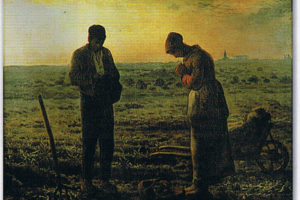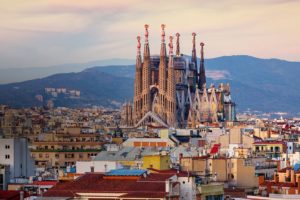Christmas and the days leading up to it, otherwise known as advent, have profound implications for our everyday experience. The incarnation infuses meaning into a humanity lost in a void of meaninglessness. It has certain clear ethical implications, as well as direction for reflections on place and vocation. Lastly, it musters up an incarnational ideology where ideological darkness–the darkness that obscures true and therapeutic ideology–finds itself under threat of extinguishment via the light that was coming into the world in Jesus Christ, giving light to everyone (John 1:9). This light is divine light whose content is Jesus Christ. He is the meaning of life.
Meaning Infused into Humanity
Before the incarnation, humanity is lost in a void of meaninglessness. We try to seek meaning via our own wisdom and continuously fail. But with the incarnation, the magi – or wise and learned men who were likely astrologers – find Jesus using the full extent of human wisdom. This says nothing about the merits of human wisdom. Rather, it shows how God is able to reveal himself to us even through our most opaque lenses.
What does it mean for Jesus Christ to be humanity’s meaning? This fundamentally means that all meaning, all truth and substance to life itself finds its source in Jesus Christ himself. Your life means something because God became incarnate in Jesus Christ. The meaning of life is knowledge of God in Jesus Christ. The annunciation of Christ is the annunciation that God has not given up on his people and that he has made a way for the salvation of humanity.
The Ethics of the Incarnation
This new meaning is imperative for understanding the way we should live. Every ethical question must now be asked “what shall I do in light of the fact that God became a man in Jesus Christ?” The incarnation commands a new way of living; it requires a transition from anticipation to proclamation. We proclaim the first and second advent and our location in between them. We live in light of this reality by building the kingdom of Heaven here on Earth through the ethical imperatives of the New Testament.
Reflections on Place and Vocation
Our place and vocation, then, is as kingdom-builders. We have been commissioned to build the kingdom that is in Heaven here on Earth. Our cosmology is one characterized by the “coming down from Heaven” spoken of in the Book of Revelation, where the holy things of Earth are patterned after the Heavens. Our eschatology is one where the Heavenly city comes down to Earth as a distinguished reality.
Incarnational Ideology
All of this creates an incarnational ideology that exists in our culture by way of our collective belief in it. Ideologies are strange creatures whose origins are of the chicken-and-egg type. On one hand, ideologies are systems of ideals that form the basis of some political, economic, or in this case, theological theory or idea. This definition of ideology places it underneath the world of ideas. On the other hand, ideology are emergent in that they emerge from a collective belief in a system of ideals. This makes it hard to discern the historical and logical origin of an ideology. Nevertheless, belief in an ideology makes the implementation of an idea in culture and society possible and effective.
An incarnational ideology could also be phrased as an incarnational Christian worldview wherein the focus of constructive and systematic theology is the moment when God became man in Jesus Christ for us.
This ideology ought to permeate our Christian culture (or sub-culture) and intersect with our economic and political ideologies, among others. A Christian ideology is unique in that it cannot be compartmentalized–it must reach out and touch every ideology and be allowed to radically affect them.
The meaning of life question is thus almost a moot point since it inquires after a reality that confronts us in our very identities. A search for identity is undoubtedly a search for the meaning of life as it is a search for our vocation or place in this world.
The main question is “how do I build the Kingdom on Earth?” It is a response to the reality in which we find ourselves. Therefore, we should all respond to the question “what is the meaning of life?” with that question: “how do I faithful build the kingdom of God in my heart and on this Earth?”





Leave a Reply
Your email is safe with us.